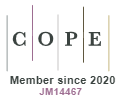THE REVERSE LOGISTICS AS TOOL FOR WASTE MANAGEMENT OF SUPERMARKETS RETAIL
DOI:
https://doi.org/10.5585/geas.v6i3.519Keywords:
Logística Inversa, Reciclaje, Residuos Sólidos, Sostenibilidad, Supermercado de Venta al por Menor.Abstract
The purpose of this research was to analyze the reverse logistics practices carried out by supermarkets in the state of São Paulo, and quantify the volume of waste that are no longer discarded in the environment. To achieve the proposed objective was conducted an exploratory, quantitative and qualitative research following a method of cases study, taking as units of analysis three supermarkets, with direct observation over a period of six months, there was the reverse logistics of clinical training in each supermarket to quantify what was left to pollute through the proper disposal of materials (plastic and cardboard). To this, it was used for data analysis Material Input Per Service (MIPS) method developed by the Institute Wuppertal to quantify the data in accordance with the produced material (abiotic and biotic) and the amount of water and air are no longer polluted. As result it was observed that the supermarkets surveyed, in total, do not generate about 220 tons of abiotic and biotic materials during the observation period, and a large amount of water and air is no longer polluted. Through the obtained results, we see the great importance of reverse logistics in the preservation of the environment.Downloads
Download data is not yet available.
Downloads
Published
2017-12-01
How to Cite
Martínez, M. P., Dias, K. T. S., Braga Junior, S. S., & Silva, D. da. (2017). THE REVERSE LOGISTICS AS TOOL FOR WASTE MANAGEMENT OF SUPERMARKETS RETAIL. Revista De Gestão Ambiental E Sustentabilidade, 6(3), 150–165. https://doi.org/10.5585/geas.v6i3.519
Issue
Section
Artigos









